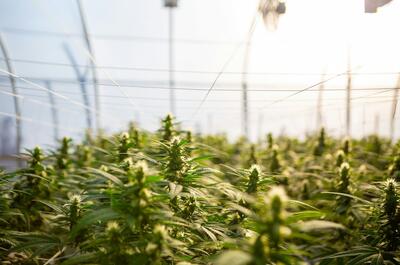Cannabis Rescheduling Explained: What Schedule III Means for the USA in 2025

Cannabis rescheduling has already taken the efforts of two different administrations; it was initiated under president Joe Biden and then continued under current president, Donald Trump. Rescheduling might not be the ideal scenario of what happens with cannabis in the USA, but it just might be the next best thing to legalization which for now remains elusive. Cannabis advocates have long-wished for a deschedule, which is completely removing cannabis from the Controlled Substances Act. Still, rescheduling would mark the most significant cannabis policy change in the USA in over 50 years. In this article, learn more about what rescheduling is, how it affects taxes, patients and consumers, and whether or not this means legalization.
The U.S. government is on the verge of making the most prominent cannabis policy change in decades. Lawmakers in Washington appear to be in the final stages of the cannabis rescheduling process, the first steps of which were started in 2022.
Cannabis rescheduling means moving cannabis from the list of Schedule I drugs to Schedule III under the Controlled Substances Act, a proposal initially unveiled under the Biden administration, but never implemented until the end during his term in office.
In one of the first steps towards this policy change, rescheduling cannabis as a Schedule III drug was recommended by the Department of Health and Human Services (HHS) back in 2023. Later on, in 2024, the Department of Justice (DOJ) via the Drug Enforcement Administration (DEA) published a Notice of Proposed Rulemaking (NPRM) to reschedule cannabis from Schedule I drugs to Schedule III drugs. A public commenting period followed, in which the DEA collected feedback from various relevant stakeholders.
Now it seems that the lengthy process is finally coming to a closure. Drastically different from marijuana’s current Schedule I status which denies its medical value, Schedule III would classify cannabis as a softer drug and acknowledge it’s a real medicine - this could possibly happen by the end of 2025.
What is Cannabis Rescheduling? A Simple Breakdown
Drug “Schedules” under the Controlled Substances Act is a legal rule which sorts out which drugs or medicines need to be strictly controlled and which don’t. Some drugs are so poisonous that they are completely banned. Each country has its own law on categorizing the legality of different substances. The Controlled Substances Act is the U.S. regulatory instrument by which drugs and medicines are viewed on its territory.
Rescheduling does not mean that cannabis would be removed from the Controlled Substances Act, but simply it will be moved to a different category that recognizes its therapeutic value and lower abuse potential, in striking contrast to Schedule I drugs such as heroin or LSD. It’s as if the government is shifting from saying ‘it has no use and is extremely poisonous’ to ‘there are actually therapeutic benefits from it and less adverse reactions than we previously thought’ about cannabis.
From Schedule I to Schedule III: What’s the Real Difference?
Drugs considered to have the highest potential of abuse and which pose a threat for serious psychological and/or physical dependence, are placed in Schedule I, while those with the lowest abuse potential are called Schedule V drugs. With the proposed legal switch, cannabis is supposed to be placed in Schedule III, or somewhere in the middle. That puts it in a group of drugs which are deemed with less abuse potential than Schedule I or II, but more so than Schedule IV or V.
Let’s take a brief look at how Schedule I drugs compare against Schedule III drugs.
- Medical use: Schedule I substances have no accepted medical applications, while Schedule III are drugs with approved medical uses.
- Abuse potential: Schedule I drugs have high abuse potential, versus Schedule III which have moderate to low abuse potential.
- Type of substances: Schedule I numbers hard drugs such as heroin, LSD, MDMA, magic mushrooms and similar hallucinogens, while Schedule III entails softer drugs such as Tylenol with codeine, ketamine, testosterone, and certain steroids.
More information about all “Scheduled” Drugs under the Controlled Substances Act can be found on the official DEA webpage here.

The Role of DEA: When Will a Final Decision Be Made?
While the federal cannabis reform may be completed by the end of 2025, it has already taken more than one U.S. government team to work out all the necessary steps and details.
The schedule review process for marijuana was launched in 2022 during Biden’s time in the White House. DEA as one of the federal agencies involved in the review and reschedule proposal is expected to have a final say on what happens. After which the actual president of the United States needs to sign that final decision into a law.
Within the review process, initially, cannabis relisting as a Schedule III drug was recommended by the Department of Health and Human Services (HHS). The HHS engaged in a scientific review where it gathered and assessed all evidence demonstrating that cannabis has medicinal value and it’s acceptable to be added in the Schedule III list. The HHS took 11 months to complete its review and finalized that part of the process by sending an official letter to the DEA which formally recommended cannabis for a removal from the Schedule I list. Soft Secrets USA reported on this development back in 2023.
In 2024, the Department of Justice (DOJ) through the Drug Enforcement Administration (DEA) officially published a Notice of Proposed Rulemaking (NPRM) to reschedule cannabis from Schedule I drugs to Schedule III drugs. This proposal, currently still pending for a final decision, should ultimately classify marijuana as a drug with “accepted medical use” and one with “moderate to low potential for physical and psychological dependence.” The DOJ announcement was followed by a public comment period and final review by the DEA.
The public comment period on DEA’s proposed rule to reclassify cannabis was opened between 21 May and 22 July, 2024, and it amassed more than 43,000 comments submitted by citizens, organizations, and experts.
The DEA is still analyzing the feedback it received during the public comment period, and is considering everyone’s input for making the final decision. Beyond that, the federal body has also been occupied with administrative law hearings as requested by some stakeholders. These hearings are like an extension to the public comment period and again serve as a way for the DEA to compile more information and evidence. A final DEA cannabis decision is expected by the end of 2025. Whichever the outcome is, the final decision on cannabis reschedule will be published in the Federal Register.
The Game Changer: How Rescheduling Impacts the 280E Tax Code
Cannabis rescheduling in the USA is foreseen to have an enormous economic impact, which is the most critical aspect of the entire industry. Importantly, it is supposed to remove the punitive 280E Tax Code, which currently applies to all cannabis operators and businesses.
Tax Code 280E imposes rigid restrictions because of “trafficking” Schedule I or II substances, by disallowing companies to deduct ordinary business expenses, such as rent, salaries or utilities. As a direct result of this code, cannabis companies have to pay taxes on their gross revenue instead of their profit, jeopardizing their financial health.
The burden is also visible through numbers and statistics. With volatile marketplace conditions aggravated by excess business cannabis taxes, such as the 280E tax code, cannabis companies are failing to turn in profits. Only 27% of all registered cannabis operators in the USA were profitable in 2024, while 40% reported breaking even, and 32% being not profitable, according to Whitney Economics. In 2024, the cannabis industry was forecasted “to pay an additional $2.3 billion in excess taxes as a direct result of the current scheduling policy,” and should there be no cannabis reform, the burden of extra taxation might increase to over $5 billion by 2030.
By moving cannabis to Schedule III, 280E would no longer apply. Businesses would be able to operate like every other company, boost their profits, become more stable and ripe for investments.

What Rescheduling Means for You: Consumers, Patients, and Businesses
Rescheduling does not only concern licensed cannabis operators, granting them significant business tax relief, but it also concerns the regular consumer. It will affect medical and recreational users alike. Here’s the wider impact of cannabis rescheduling.
For Medical Cannabis Patients
- Greater medical legitimacy: Patients should have improved access to much needed cannabis medicines.
- More authorization for doctors: Doctors would be able to make more recommendations or even prescribe cannabis. So far they have only been able to “recommend” cannabis for certain medical conditions, and many of them have avoided using even that ability, simply because they feel uncomfortable endorsing something that officially falls under Schedule I.
- Options for insurance coverage: Though not immediate, making cannabis Schedule III opens the door for possible insurance coverage in the future, for eligible conditions which will be clarified by federal authorities.
- Opportunities for medical research: More funds and resources should become accessible for scientists to investigate new cannabis treatment for patients in need, in particular diseases where conventional medications fail.
For Recreational Consumers
- Indirect impact of cannabis rescheduling: Regular users may benefit from a more stable industry that will offer potentially safer and cheaper products thanks to the improved financial standing of companies.
- IMPORTANT NOTICE: Placing cannabis in the Schedule III substance list will NOT legalize recreational use at the federal level. State laws will continue to apply.
For Cannabis Businesses and Entrepreneurs
- Relief from the 280E tax burden: as explained previously.
- Access to traditional banking services: This far, cannabis operators have not been able to benefit from basic services such as working with credit cards or taking a bank loan.
- Potential to be listed on major U.S. stock exchanges (NASDAQ, NYSE): Mostly ancillary businesses have so far traded stocks in the USA, while others have opted out from going public and openly trading.
- Increased investment and market consolidation: Rescheduling will change the dynamics by contributing to a less volatile and more predictable marketplace, attracting those investors who have traditionally been afraid to participate in cannabis.
Is This the Same as Federal Legalization? No, It’s Not!
A common if not the biggest misconception about relisting cannabis as Schedule III drug is equaling this corrective measure to legalization. So, to make it crystal clear, it’s a big NO, rescheduling definitely is not legalization.
See below the difference between rescheduling versus legalization:
- Rescheduling: Cannabis remains a federally controlled substance, but in a less strict category. Federal legal use will require authorization (such as granting doctors the ability to write prescriptions)
- Legalization: Indeed, this is the long-term goal of cannabis advocates. Legalization means removing cannabis from the Controlled Substances Act entirely, or descheduling. In which case, cannabis will receive the same treatment as alcohol or tobacco.
With rescheduling cannabis and listing it under Schedule III substances, the conflict between federal and state laws will continue, though perhaps not at such a great intensity. A cannabis shop in a legal state will still be going against federal rules, though the possible penalties would be much smaller.

The Future of Cannabis Research After Rescheduling
One of the long-term gains from rescheduling would be the advancement in cannabis science and research at home. For most of the last five decades, the Schedule I status of marijuana in the USA has been a huge limitation for scientists wanting to study cannabis.
The DEA has already implemented some changes, such as registering new domestic cannabis operators to cultivate cannabis plants for medical and scientific purposes. Prior to 2021, American researchers were only allowed to use supply from the growing facilities of only one registered cultivator for this purpose, that is the growing facilities of within the University of Mississippi - the sole supplier for decades. The National Institute on Drug Abuse (NIDA) mediated the process in which new growers were ultimately included.
Rescheduling cannabis would build on this and similar efforts, creating more opportunities for researchers. It will remove bureaucratic hurdles for universities and other research institutions to obtain licenses as well as cannabis samples for research purposes. The end goal here is to speed up learning on both the benefits and risks of administering cannabis for medicinal reasons.
Frequently Asked Questions (FAQ)
Here are quick answers to some of the most important, commonly asked questions.
Will cannabis be legal everywhere if it gets listed as a Schedule III drug?
No. Federal rescheduling will not automatically make cannabis legal nationwide. State laws will still apply, and adult-use of cannabis will remain prohibited at the federal level.Will cannabis prices go down after rescheduling?
Yes, somewhere down the line, prices are supposed to plummet. The potential removal of the 280E tax burden will make cannabis companies more stable and secure, increasing competition and reducing prices for consumers.Can doctors prescribe marijuana if it becomes a Schedule III substance?
Yes, the FDA would be able to approve new cannabis-based drugs that doctors could formally prescribe, similar to other Schedule III-V medications. So far, a doctor’s ability has been to give a written recommendation on cannabis use in states where medical cannabis is legal.
Rescheduling is a monumental step, even if it’s not the final destination or what all of want wish to happen - which is complete legalization. The impact will be massive, and it will be primarily reflected on stabilizing the industry and prices, and easing access for medical and scientific uses of cannabis.
Summed up, these would be the top three gains from cannabis rescheduling:
- Significant tax relief for the budding cannabis sector, leading to increased revenues.
- Medical legitimization which will enable doctors to prescribe cannabis medicines.
- A boost for research during an exciting time when scientists do need more funds and resources to discover more about minor cannabinoids, terpenes, and other compounds that have just started to get a notice.
Finally, rescheduling should also counteract stigma and foster greater acceptance of cannabis among medical practitioners, employers and policymakers in general.
This is a developing story. Subscribe to the Soft Secrets newsletter and continue receiving the latest updates carefully prepared by our team.










